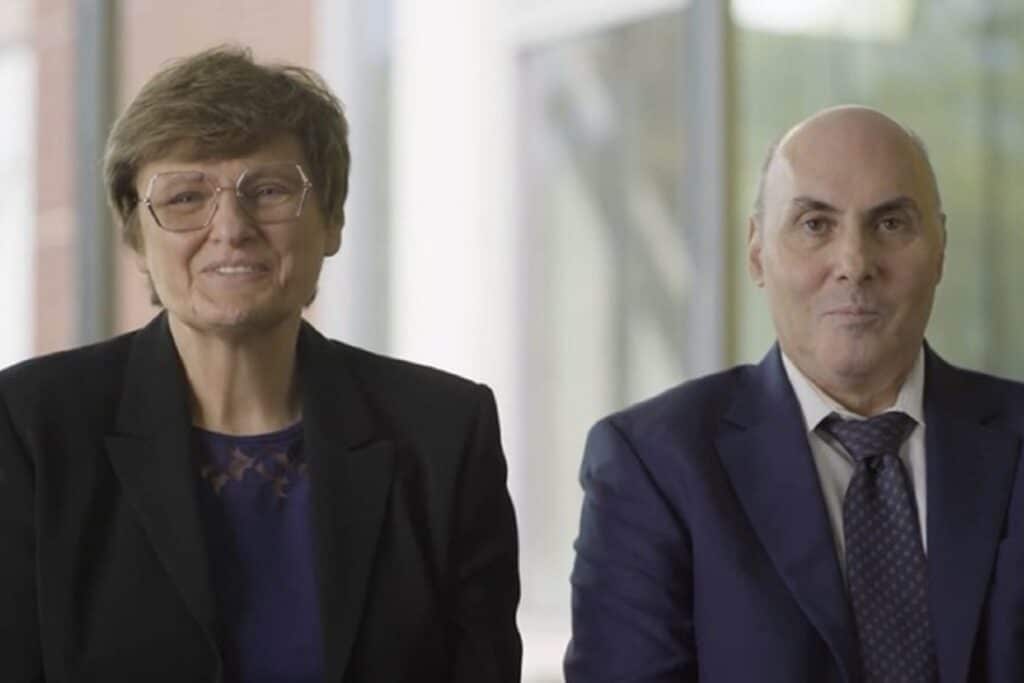Two scientists whose groundbreaking work saved millions of lives during the Covid-19 pandemic have been awarded this year’s Nobel Prize in Physiology or Medicine, including Katalin Karikó, who is just the 13th woman to win a Nobel Prize in this category.
Karikó, a biochemist at Szeged University in Hungary, joins Drew Weissman in taking out the prize, an immunologist at the University of Pennsylvania in Philadelphia.
The Nobel Prize has been awarded to women just 62 times across all categories since 1901. Karikó is the 13th woman to win in the medicine category.
Born in Hungary before moving to the US in the 1980s, Dr Karikó tells Nature, she hopes the prize “will inspire women and immigrants and all of the young ones to persevere and be resilient.”
She and Dr Weissman together identified a tweak to messenger RNA– resulting in the ability for effective Covid vaccines to be made in less than a year, averting the loss of missions of lives during the worst global pandemic in a century.
The largest producers of Covid-19 vaccines– Moderna and BioNTech, which partnered with Pfizer– both used the modification Dr Karikó and Dr Weissman discovered. And the use of mRNA has enabled both vaccines to be updated against new variants of the virus, as hundreds of millions of doses of the Pfizer-BioNTech and Moderna vaccines have been given around the world.
The scientists’ transformational research has shifted vaccine technology in a way that one day may protect against a number of other diseases as well, including cancer.
Coming up against its fair share of obstacles, this work was met with indifference from grant reviewers, leading to a lack of funds. Luckily the pair were able to rely on university seed money. Now, with the Nobel Prize, each of them will receive half of the total 11 million Swedish krona (about AUD$1.5 million).
Following her well-deserved win, Karikó said her mother used to tell her “every October” that she had been listening to the radio to hear her daughter’s name as the recipient of the Nobel Prize.
“I told her ‘Mom, you know, I never even get a grant’”, said Karikó, adding that her mom would simply tell her “But you work so hard”.
With Karikó’s hard work finally being recognised, scientists and award panelists have pointed out that her and Weissman’s research efforts took decades of perseverance.
“This discovery has opened a new chapter for medicine,” said Nobel committee member Qiang Pan Hammarström, an immunologist at the Karolinska Institute in Stockholm, at a press conference after the prize announcement. “Investment in long-term basic research is very important.”
Echoing the need for investment into long-term research like that of Dr Karikó’s and Dr Weissman’s work, Brian Ferguson, an immunologist at the University of Cambridge said: “What is now recognized as a transformative technology required dedicated scientists to carry out fundamental research over many years to reach the position it was in 2020 when its rapid deployment as a vaccine technology was made possible by global collaboration.”
“The work of Katalin Karikó and Drew Weissman in the years prior to 2020 made this possible, and they richly deserve this recognition.”


